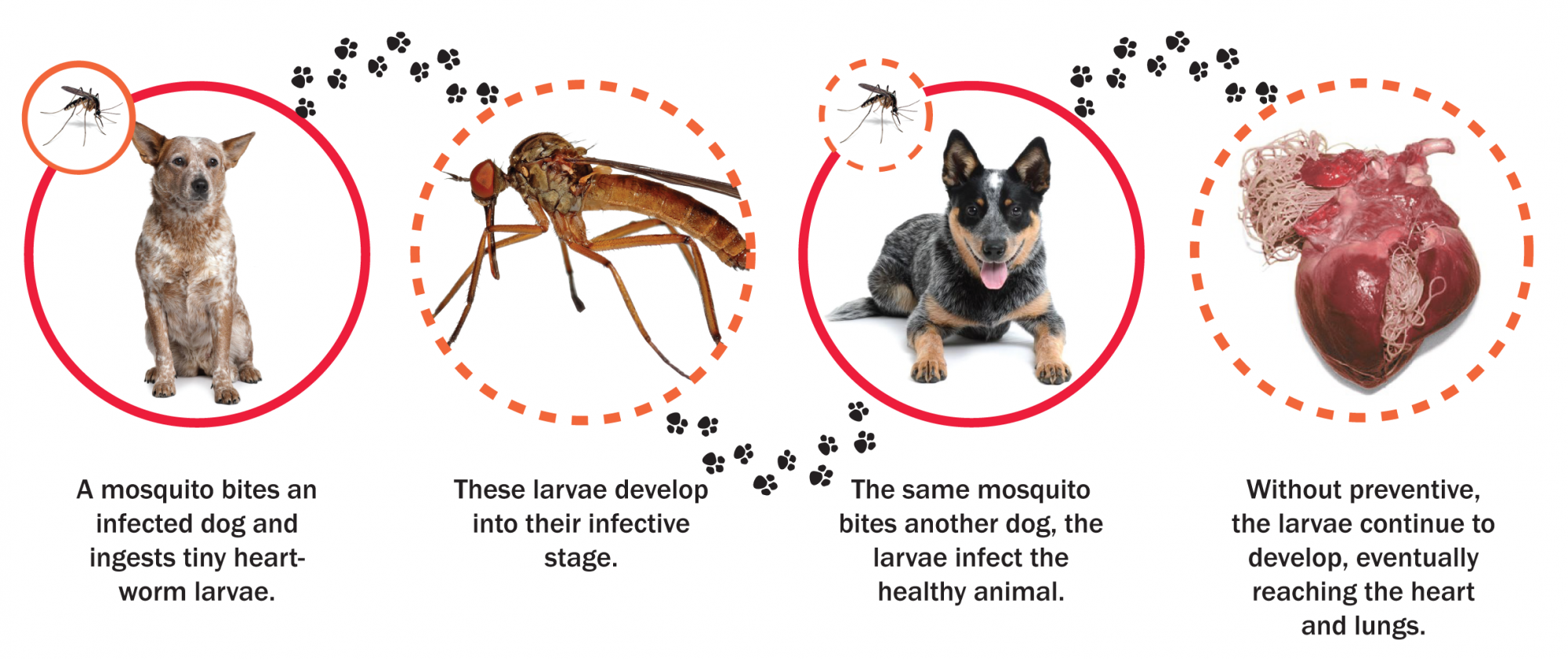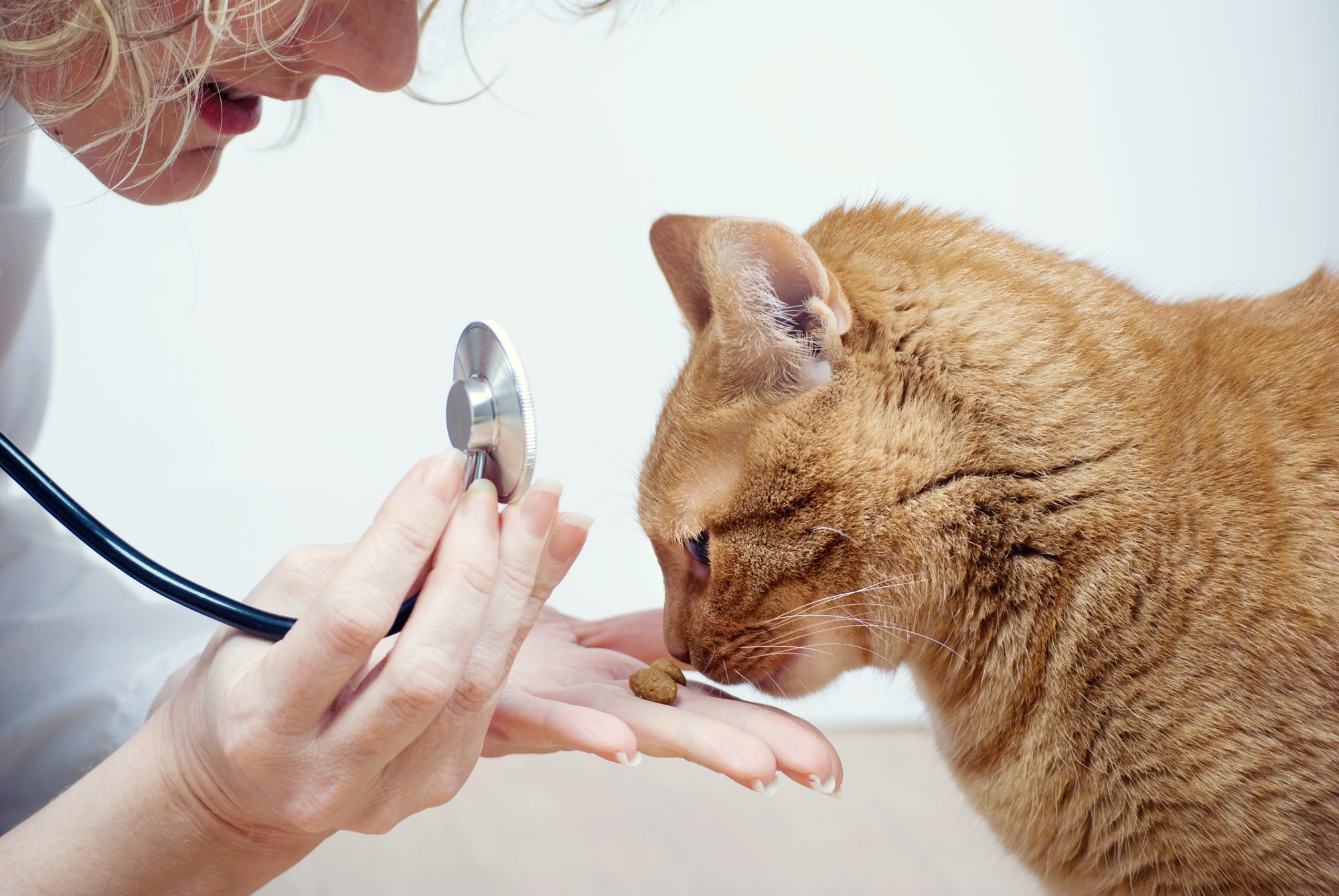April is for Heartworm Awareness

by MANDI BROADBENT, CSR
April means Springtime: baby animals learning how to forage, birds chirping in the trees, the days growing noticeably longer and warmer, and of course…BUGS.
Springtime means bugs. But more specially, it means mosquitoes. Those nasty, blood-sucking spawns of Dracula that do nothing but cause itching and discomfort. They’re awful and always happy to spoil a party. However, thanks to modern bug repellents, humans have been able to limit their exposure to these little devils.
But what about our pets?
We all know that mosquitoes carry human diseases like West Nile virus, Zika virus, malaria, and Dengue fever. Did you also know that mosquitoes carry something dangerous for your critter too?
Heartworms.
April is National Heartworm Awareness Month, and Lincolnshire Animal Hospital joins with our fellow clinics worldwide to shed a little light on this potentially fatal, but often preventable, disease.
Heartworm disease, or dirofilariasis, is caused by a blood-borne parasite known as dirofilaria immitis, a roundworm commonly called “heartworm”.

Knowledge is the best way to keep your pets healthy. Found in the heart and adjacent large blood vessels of infected animals, heartworms are spread through mosquito bites. More commonly found in dogs, these parasitic roundworms wreck havoc on a pet’s physiology and quality of life causing severe lung disease, heart failure, organ damage, and even death. It is a dangerous and deadly disease that can often take several years before an animal will show symptoms of the infection. Treatment is expensive, costing owners between $1,000 -$3,000 – and involving multiple visits to your veterinarian. If your pet is already on insurance, it may help to offset some of the costs.
Here are some things to keep in mind when it comes to heartworm, it’s treatment, and it’s prevention.
Heartworm Awareness and Prevention
At Lincolnshire Animal Hospital, we take heartworm awareness seriously. We recommend administering an oral monthly heartworm prevention, like Heartgard® or Sentinel®, or an injectable heartworm prevention like ProHeart® 6. These preventives stop heartworms from growing up and making a home in your pet’s system. You can expect to pay between $100 – $200 for a year’s supply of heartworm disease prevention.
Diagnostic and Annual Tests

Test your pets for heartworm disease every year at your annual vet visit. If a heartworm positive dog is not tested before starting a preventive regimen, the dog will remain infected and the disease will progress, even with the monthly chewable. We require a yearly blood test to confirm that your pet is heartworm free before prescribing, administering, or selling any heartworm disease prevention at our hospital. The earliest heartworms can be detected is 5 months after a dog has been bitten by an infected mosquito.
Symptoms of Heartworm
Cough, fatigue, decreased appetite, and weight loss are the main symptoms displayed by both dogs and cats.
Treatment
While the best treatment is prevention, animals can be exposed to the disease for a variety of reasons, and accidents can happen. Heartworm treatment is expensive and it can cost several thousand dollars (whereas preventative monthly treatments can range from $5 to $20 per month). The treatments aren’t “easy” for the sick animal either. Check with your veterinarian about the medications necessary to treat heartworm and know the side effects or complications that can come along with it. The American Heartworm Society is very clear that alternative therapies claiming to be “natural” or “herbal” will not be effective or safe in the treatment of heartworm disease.
Cats

Cats are resistant and atypical hosts for heartworms, but they can be infected. The symptoms are like those in dogs, however most cats do not have adult heartworms. Unfortunately, cats run the risk of misdiagnosis because diagnosis is rare, though they can still suffer from organ damage and respiratory disease.
Heartworm disease is a scary diagnosis, but luckily the advancements of modern medicine have allowed us an avenue to fight it from. If you are concerned that your pet may have a heartworm infection – don’t panic. With the help of your skilled veterinarian, heartworm disease doesn’t have to be a death sentence. And remember… the best way to help prevent heartworm is a good monthly preventative and a yearly blood test. Trust us… you’re pet will thank you.

